And What Materials Should You Choose for Your Next Project?
For the care, time, and money you’re putting into perfecting your outdoor space, you want it to last. There are many sustainable, durable, and reliable materials to choose from. But, which material is best depending on the needs of your next project?
Of course, most lumber designed for outdoor projects is sturdy and long-lasting. But when weather, foot traffic, furniture, and other factors come into play, you want to make sure you’re making the right choice.
When do you need to buy the highest-quality decking materials on the market? When is an affordable option the better choice?
Let’s look into what you can expect from different types of decking and how to make your decision.
Different Types of Decking Materials
You have quite a few options when deciding what materials to use for your deck. Of course, there’s the traditional softwood and hardwood, capped and uncapped composite, capped polymer, and more.
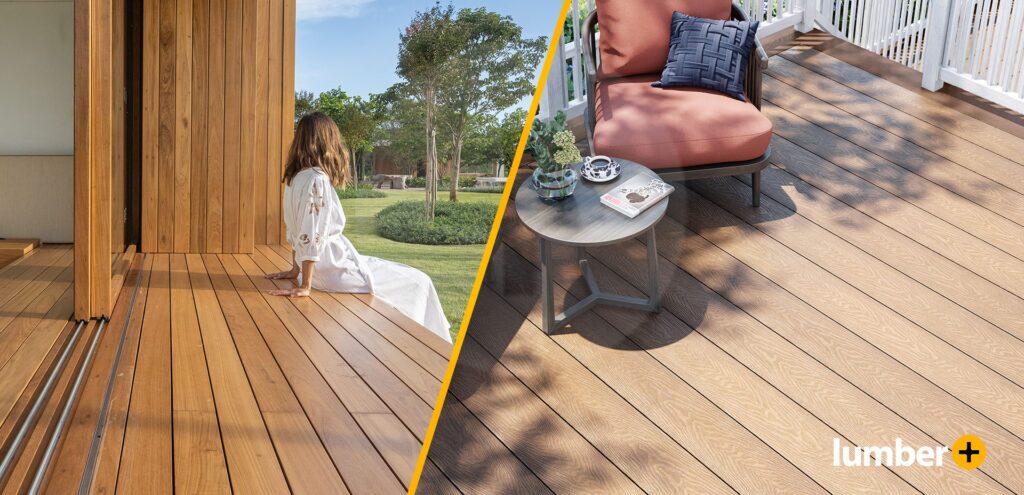
First, let’s break down the lifespan of a few of these materials:
- Non-Treated Softwood – Approx. 10-15 years
- Capped Composite – Approx. 25-30+ years
- Capped Polymer – 50+ years
- Hardwoods – up to 75 years with proper maintenance
Out of all these materials, hardwoods of course have the best lifespan. This makes hardwood the most cost-effective solution among these decking materials.
You might be thinking, there you go, that’s the answer to our question, isn’t it? The answer is a little more nuanced than you’d think.
Choosing the Best Decking Material
According to TimberTech, there’s an important rule of thumb when it comes to choosing lumber materials. The more advanced the technology is, the less maintenance it’s going to need.
Softwoods
Non-treated softwoods like spruce, cedar, pine, and fir are known for their pliable nature and flexibility. However, their flexibility comes at a price. Softwoods tend to be highly porous and absorbent. They retain water easily, leading to several potential complications for future use. Softwoods bend, break, dent, or crack easily. These damages mean that softwoods are the least viable option when building a deck to last a lifetime.
Softwoods are better for smaller fixtures, outdoor furniture, or moldings. We do not recommend using softwoods for decking materials.
Composite Decking
When it comes to composite decking, there are two types to choose from:
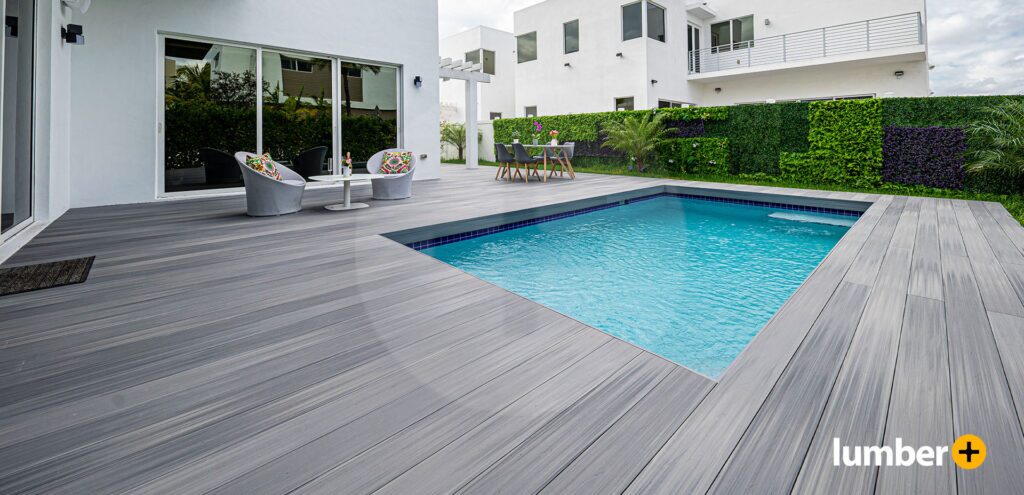
- Capped Composite Decking – When we say “capped”, we are referring to the protective capping around three or more sides of the board. The capping is usually made from plastics, polymers, or other materials.
- Uncapped Composite Decking – When a composite deck board is “uncapped,” the panels don’t have these protective caps at all. Without that protective layer, uncapped composite isn’t fortified against mold, mildew, and other degrading agents. These things could drastically reduce the lifespan of your deck.
Capped composite decking is an excellent addition or alternative to natural hardwoods. They’re low-maintenance and highly durable. Their lifespan puts them in the same rank as PVC and even some hardwoods. Most high-quality composite decking materials last anywhere between 25-30+ years.
Brands like Norx build their capped composite decking materials to last. Strong contenders include Trex and TimberTech for composite decking. All composite decking materials endorsed and sold by Lumber Plus are built to last.
PVC
PVC boards are virtually maintenance-free and are engineered to have a solid, uniform cell structure. PVC boards have an authentic wood grain pattern and texture, and can survive in all sorts of harsh climates. PVC, along with composite decking, have long service lives. PVC, however, lasts just a bit longer, ringing in at 50+ years.
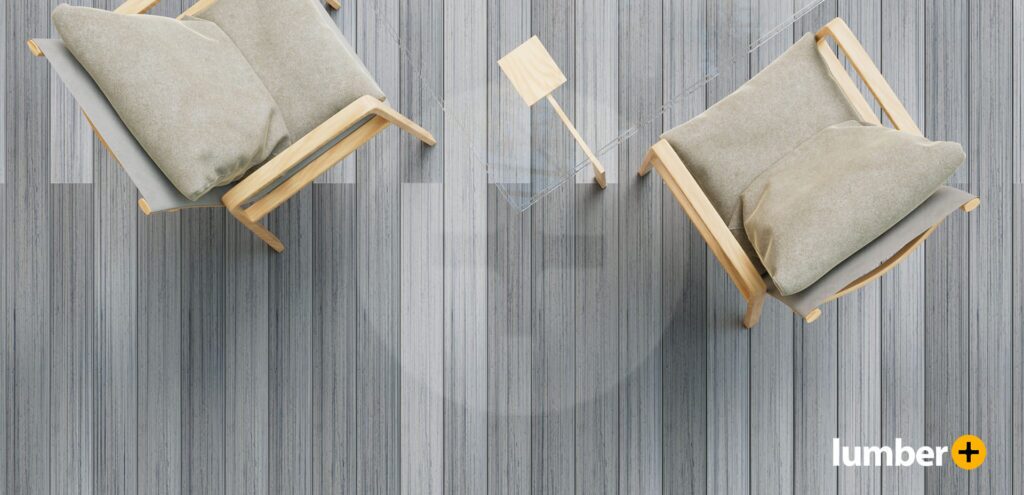
PVC is visually appealing and can come in a wide variety of textures, colors, styles, and patterns. Azek’s collection spans multiple hues and will look stunning in any outdoor space. Fiberon’s high-performance PVC collection can also be paired with composite materials and even certain hardwoods.
Hardwoods
The reigning champion of long-lasting and durable decking materials, hardwoods have a lifespan of 75+ years. Sourced ethically and extracted with reverence, Lumber Plus offers a range of beautiful and durable hardwoods for your next decking project.
Choose from a multitude of hardwood options like Ipe, Cumaru, Jatoba, and so much more when crafting a perfect outdoor space. This eco-friendly and cost-effective solution to outdoor beauty is meant to stand the test of time.
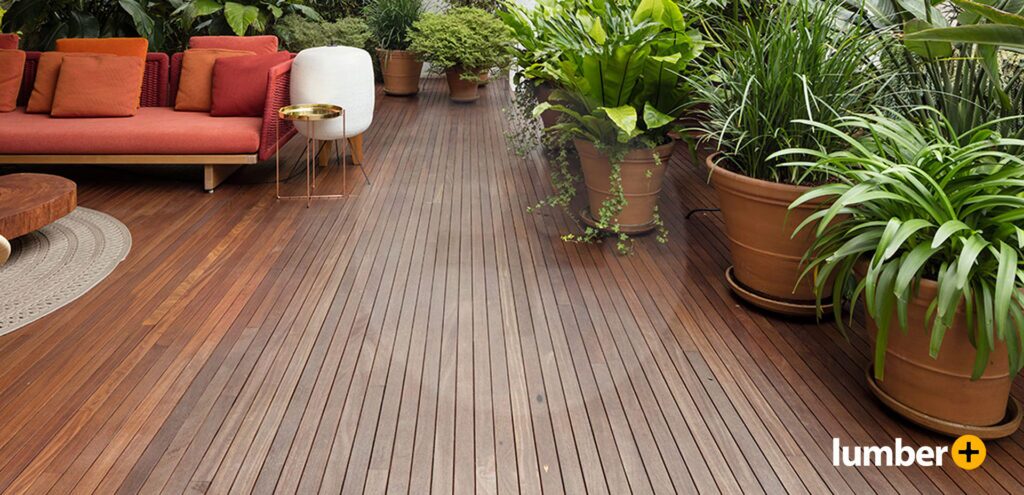
Hardwoods can also be used alongside other sustainable materials like PVC and composite decking. A combination of these products will produce a unique, innovative, and gorgeous outdoor living area.
Which Material to Choose: Consider What Works for You
It’s a give-and-take situation. Your choice should primarily be made based on what you expect your deck to endure.
If you’re just looking to sit out and entertain with a few chairs and a table, composite decking or PVC boards will work just fine for you. Similarly, if you’re in an area with more temperate weather, these options are great choices.
That said, if you want a hot tub, grills, or other heavy appliances and furniture on your deck, hardwoods are the way to go. If you’re in an area where severe weather is a concern, hardwoods like Ipe last upwards of 75 years or more.
Choose your decking based on what you foresee for your deck. Consider the financial investment, too. Investing in durable, long-lasting materials means less money spent on upkeep for the years to come. You can save significantly when investing in sturdy decking boards.
These considerations will help you make the right choice and save yourself time and effort down the line.
Are Warranties a Good Indicator of Lifespan?
You might notice when you’re picking out materials for your deck that most products come with warranties. For example, most Trex-brand materials come with a 25-Year warranty.
But with the right maintenance, yearly inspections, and careful planning, decking materials can outlive their warranties.
Even with these tips for extending the lifespan of your deck, it’s still important to consult an expert. This is true even if it’s just to inspect your deck every few years.
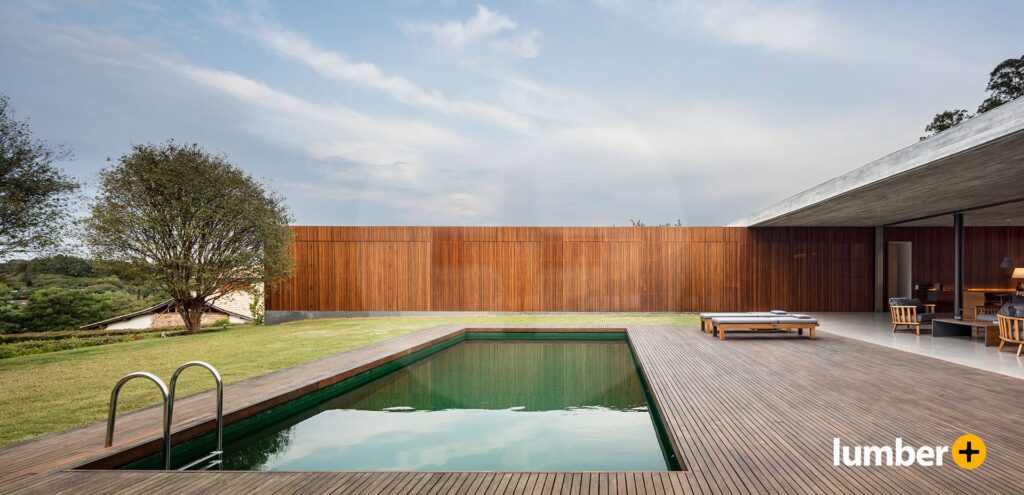
DIY projects can and have lasted for generations. However, if you feel like you could use an expert eye on your deck, talk to a contractor or builder. They will help you learn how to best maintain your deck. Not only this, but they will have the experience to build it the right way the first time.
Lumber Plus Has Your Back for All Forms of Decking
Our vast selection of decking materials gives you endless options when it comes to the look, feel, and style of your new deck space. Let our experts answer any questions you might have. You’ll be glad you did.
To browse our online selection or discover how to pay us a visit in-store, explore our website.






